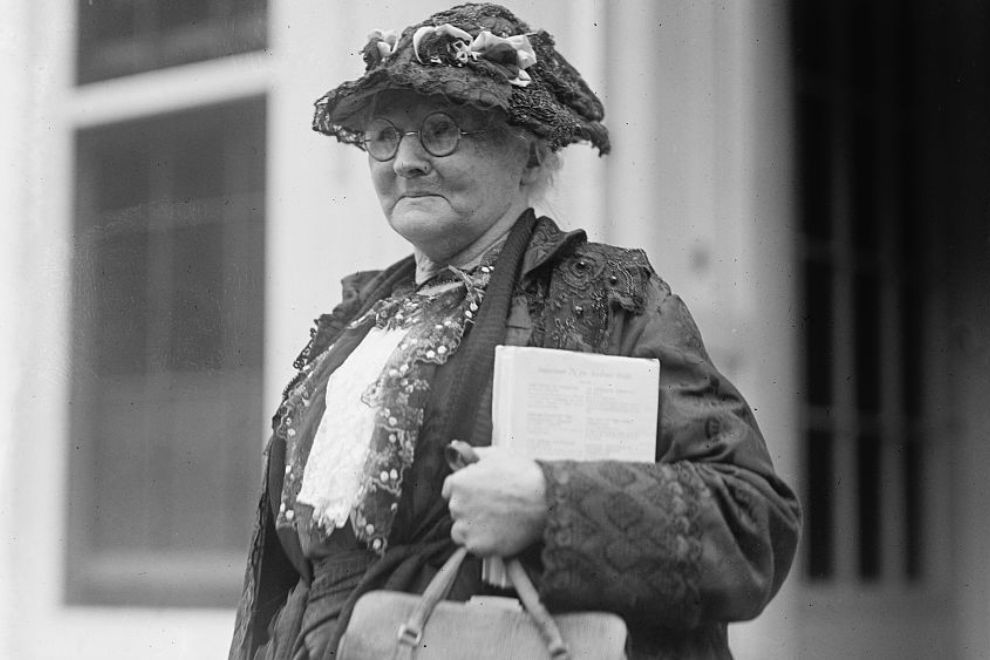
Mary Harris “Mother” Jones: The Fearless Voice of Workers’ Rights
Introduction
Mary Harris “Mother” Jones was not just a labor leader—she was a symbol of courage, determination, and resilience for workers during one of America’s most difficult eras. Often referred to as “the most dangerous woman in America” by powerful industrialists, Mother Jones dedicated her life to fighting for justice, fair wages, and humane working conditions.
Her fiery speeches, bold protests, and refusal to be silenced made her an icon of the American labor movement. With her compassionate spirit and iron will, she became the “Mother” of striking miners, exploited factory workers, and child laborers.
In this blog, we’ll explore her extraordinary journey, her role in shaping labor rights, and some of her most powerful quotes that continue to inspire activists today.
Early Life of Mary Harris “Mother” Jones
Mary Harris was born on August 1, 1837, in Cork, Ireland. Like many Irish families, hers faced hardship during the Great Famine. Seeking a better life, her family immigrated to North America when she was still a child.
Mary became a teacher and later worked as a dressmaker. However, tragedy struck when she lost her husband and four children to a yellow fever epidemic in 1867. Shortly after, her dress shop in Chicago was destroyed in the Great Fire of 1871.
These devastating events fueled her empathy for the poor and working class, eventually shaping her into one of the most fearless labor organizers in history.
The Birth of “Mother Jones”
Mary Harris became active in labor movements in the late 19th century. She began organizing miners, steelworkers, and child laborers, quickly earning a reputation as a passionate and relentless activist.
She became lovingly known as “Mother Jones,” not only because of her age and grandmotherly appearance but also because she cared deeply for workers as if they were her own family.
Her mission was clear: fight against exploitation and demand justice for those whose voices were ignored.
Key Role in the American Labor Movement
1. Champion of Miners
Mother Jones was particularly influential among coal miners, who worked in dangerous conditions for meager pay. She led strikes, organized unions, and helped miners stand up against powerful coal companies.
2. Advocate Against Child Labor
One of her most famous campaigns was the March of the Mill Children in 1903. She led children who worked long hours in textile mills on a march from Philadelphia to New York, drawing national attention to the issue of child labor.
3. Organizing Strikes and Protests
She was a founding member of the Industrial Workers of the World (IWW) and was heavily involved in strikes such as the Paint Creek–Cabin Creek strike (1912–13) in West Virginia.
Despite being arrested numerous times, she never stopped fighting. She became a living symbol of resistance against corporate greed.
Famous Quotes by Mary Harris “Mother” Jones
Mother Jones was not just a fighter—she was also a gifted speaker. Her words continue to inspire activists, workers, and human rights defenders worldwide. Here are some of her most famous quotes:
1. “Pray for the dead and fight like hell for the living.”
This quote reflects her belief that honoring the sacrifices of workers required action, not just sympathy.
2. “Sit down and read. Educate yourself for the coming conflicts.”
She understood that knowledge was the foundation of empowerment. Education, she believed, was a weapon for the working class.
3. “I’m not a humanitarian, I’m a hell-raiser.”
Mother Jones never softened her words. She wasn’t interested in charity—she wanted justice and was ready to fight for it.
4. “You will find that the labor movement is divided into two classes—those who work and those who work at working.”
A sharp observation about the challenges within labor organizing itself.
5. “My address is like my shoes. It travels with me. I abide where there is a fight against wrong.”
This highlights her lifelong commitment to activism—she had no permanent home, only a mission.
6. “The labor movement was the principal force that transformed misery and despair into hope and progress.”
She recognized the power of collective struggle in creating real change.
Lessons from Mother Jones
Her life offers several timeless lessons:
- Courage Against Power: She never feared wealthy corporations or government officials.
- Compassion for the Oppressed: She treated every miner, child, and worker as family.
- Persistence: Arrests and threats didn’t break her spirit.
- The Power of Words: Her speeches inspired thousands to rise up.
Legacy of Mother Jones
Mary Harris “Mother” Jones passed away on November 30, 1930, at the age of 93. But her legacy still lives on.
- Labor rights we take for granted today—like safer working conditions and restrictions on child labor—were achieved because of pioneers like her.
- She is remembered annually on Mother Jones Day and honored by organizations fighting for workers’ rights.
- The progressive magazine Mother Jones was named in her honor, continuing her legacy of speaking truth to power.
Why Mother Jones Matters Today
Even in the 21st century, her message remains relevant. Workers around the world still face unsafe conditions, unfair wages, and exploitation. Mother Jones reminds us that the fight for justice is never truly over.
Her quotes are not relics of history—they are calls to action for anyone who believes in dignity, equality, and fairness in the workplace.
Conclusion
Mary Harris “Mother” Jones was more than a labor leader—she was the heart and soul of the American labor movement. Her fearless activism, unshakable determination, and unforgettable words continue to inspire generations.
Her story teaches us that one person’s courage can ignite a movement and that the fight for justice is worth every sacrifice.
In her own words: “I am not afraid of the pen, or the scaffold, or the sword. I will tell the truth wherever I please.”
Mother Jones lived by those words—and left behind a legacy that reminds us to fight like hell for the living.
